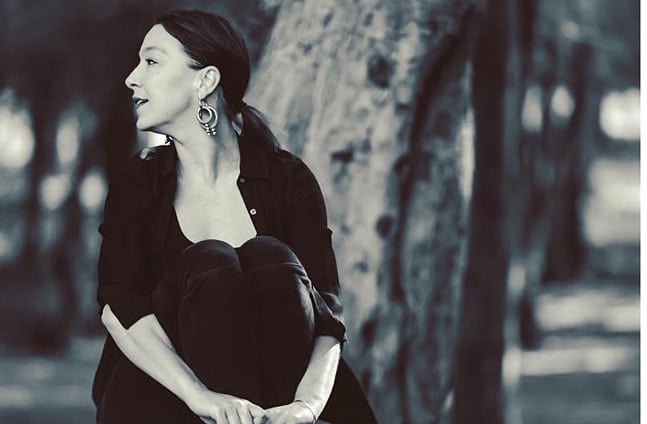Political scientist Laryssa Chomiak is the Director at the Centre d’Etudes Maghrébines à Tunis (CEMAT), the Tunis-based research center of the American Institute for Maghrib Studies (AIMS), and an Associate Fellow at Chatham House international think tank in London. Tunisia has been a focus of her professional career ever since her academic research as a doctoral student.
What is your connection to Tunisia?
My mom brought me and my sister to Tunisia in the early 1990s for spring break. We explored the desert, oases towns, waterfalls, food, the capital and seaside villages. I also purchased my first pair of Mary Jane high heels in Tunisia during that trip! Serendipitously, Tunisia became a critical inspiration for my academic research as a doctoral student and also very much informed my approach to broader political issues in the region.
How is Tunisia related to your current work?
My entire professional career, from my early Ph.D. research, to my publications and conferences, my book and job are rooted in Tunisia.
What keeps you in Tunisia?
My job at CEMAT, my community of friends and colleagues, and my married life between Tunisia and Algeria.

Ruins of Carthage, not far from the tennis club
What is the most unexpected discovery you made while living in Tunisia?
Politics are more complicated and emotional than I understood. I’ve also found a love for playing tennis in Carthage, and working with my brilliant friend, Madame Halouma, a designer, artist and tailor, who went to the Ecole des Beaux Arts and studied with the late Azzedine Alaïa.

What is the mission of CEMAT?
The core mission has been to bridge scholarly encounters between the United States and Tunisia, as well as across North Africa. Since starting work at CEMAT in August 2011, we have always kept that core mission within the variety of initiatives and programs that we implement, design and carry out.
What growth have you seen at CEMAT during your time there?
I have seen a huge increase in scholarly attention and interest in studying Tunisia and North Africa.
What accomplishment at CEMAT has made you feel the most proud?
I took the directorship of CEMAT in September of 2011, nine months after the Revolution, which inspired the Arab Spring, and three months after earning my Ph.D. in political science. I am extremely proud of my work in positioning CEMAT intellectually and practically in the country’s political transition, while never loosing touch with the various academic disciplines from archeology, urbanism and art history, to public health and economics, which we work to strengthen. We have significantly expanded our work academically and within civil society, working with foundations and the United Nations. But the program I am most proud of is our brand new “Maghreb in the Past and Present” podcast series and its global reach.
What does Tunisia mean to you?
Beauty. Love. Serenity.
What changes have you observed there over the years?
There has been an explosion in creativity around art, food, fashion, healthy lifestyles, music, and opportunities for travel and exploration.

Djerba rooftops
Where is your favorite place to vacation or visit within Tunisia?
Cap Bon, Djerba and Tozeur. Cap Bon is simply stunning with its citrus groves and picture-perfect beaches. Djerba is magical and dreamy. I always discover new gems such as pomegranate groves, vintage textiles, hidden beach huts and the best antique jewelry. In Tozeur I love the Sahelian architecture, the basket weavers, desert foxes and getting lost in oases.

Appetizers at Le Golfe restaurant in La Marsa
What restaurants do you return to?
Le Golfe in La Marsa for grilled fish and its beach view. Le Punique in Carthage for intellectual stimulation, delicious homemade dishes and hours of laughs. La Boheme in La Goulette for its experimental bistro menu and perfect cocktails. Tilar Hout in Hammamet for the best Italian seafood and pasta in a beach club. Le Petit Mousse in Bizerte for nostalgia.
What shops do you return to?
Moka Cioccolatah for their creative designs and perfectly cut dresses. The boutique at Fondouk el Attarine in the medina for crafts. Ashkan for dresses and accessories. The antique store Ayub in La Marsa for art deco furniture finds.

Fricassé sandwiches and salad for lunch
What Tunisian dishes do you crave?
Ojja and fricasse – the best street foods!
What is one thing every visitor to Tunisia should experience?
Grilled fish on the beach and a stay in one of the many new boutique hotels across the country.
Who is a Tunisian you admire?
[Tunisian film producer] Dora Bouchoucha for her grace, elegance, creativity and kindness.
What do you wish the world knew about Tunisia?
Its natural beauty, fascinating history and source of inspiration.

